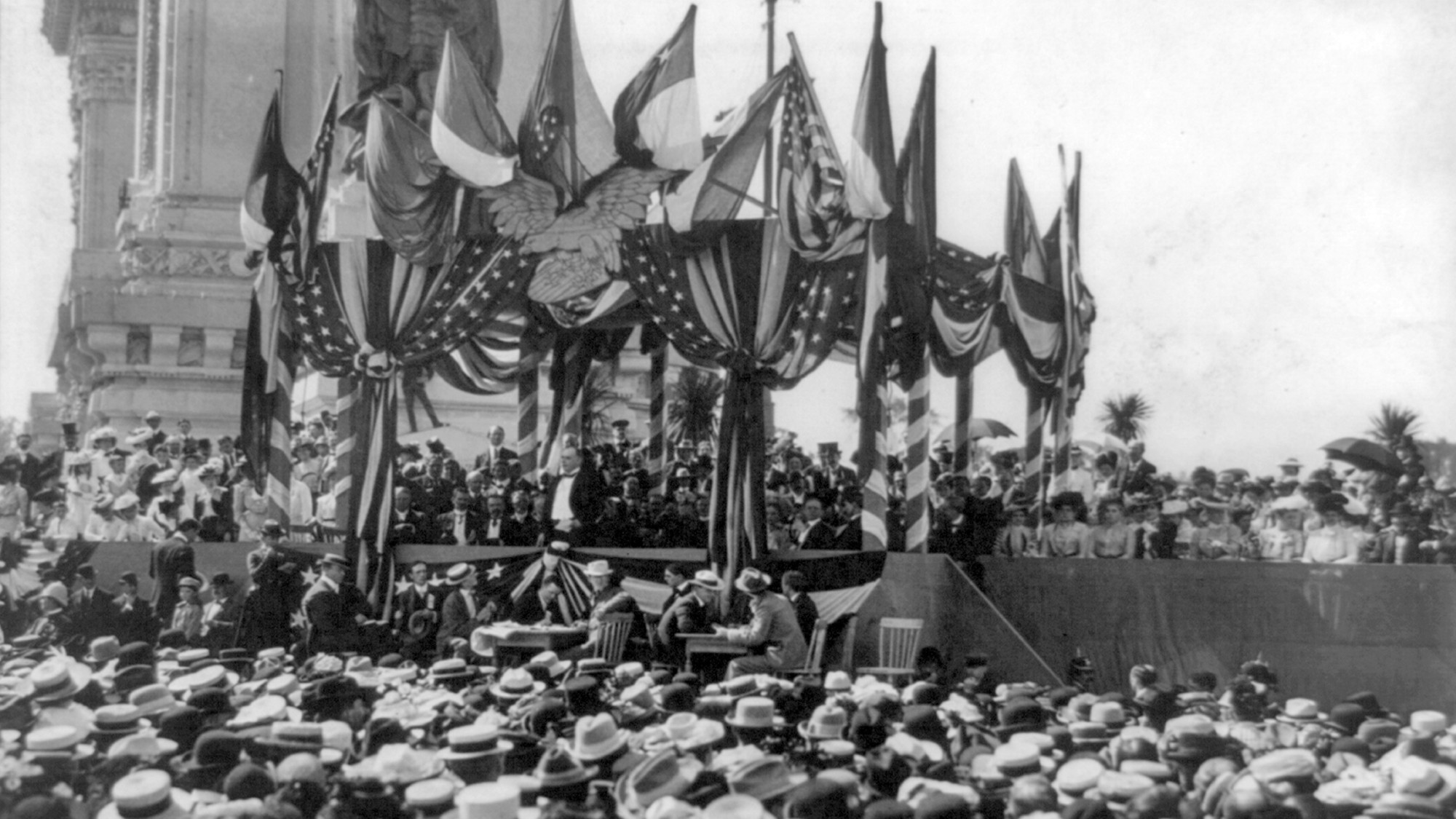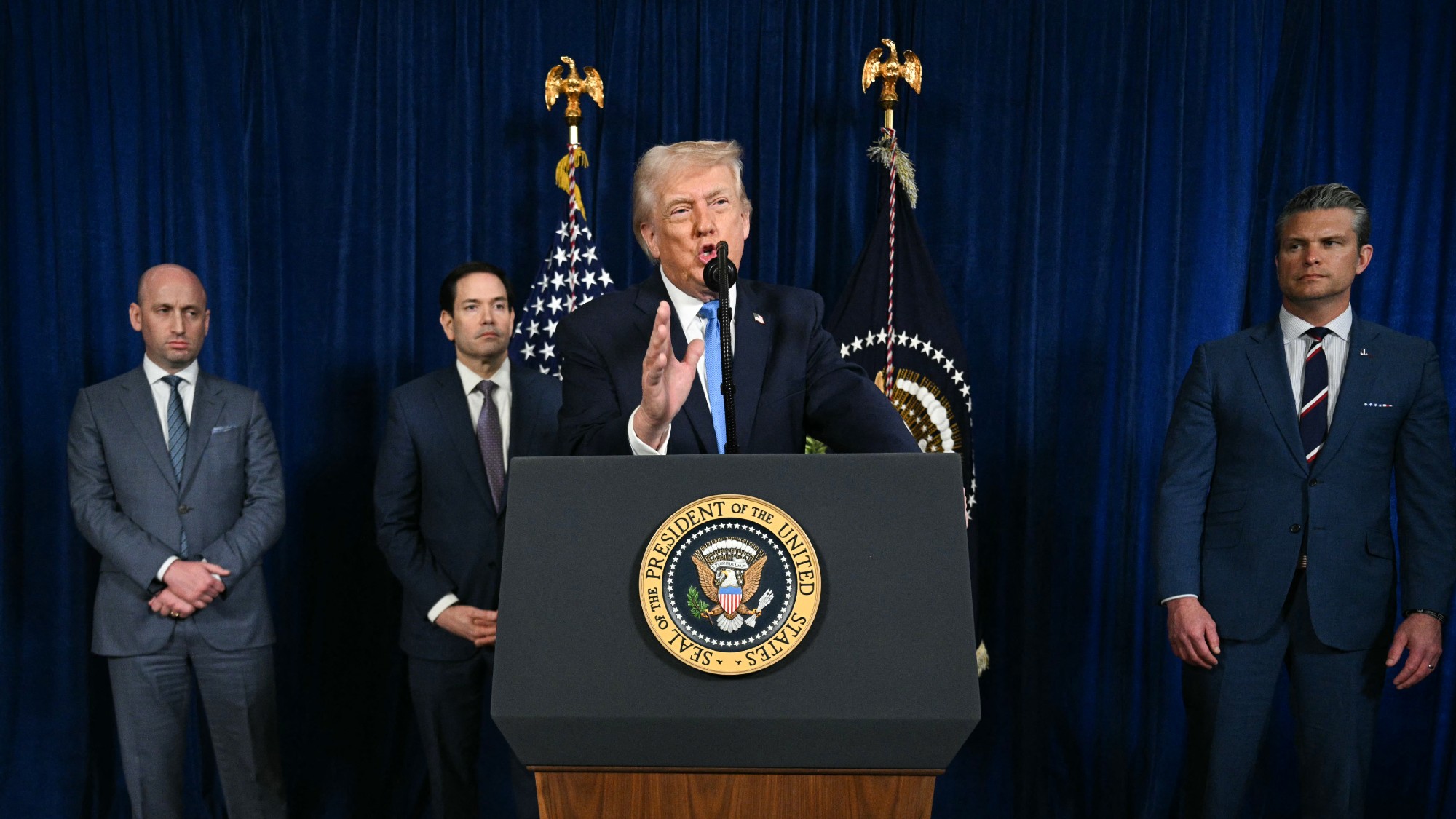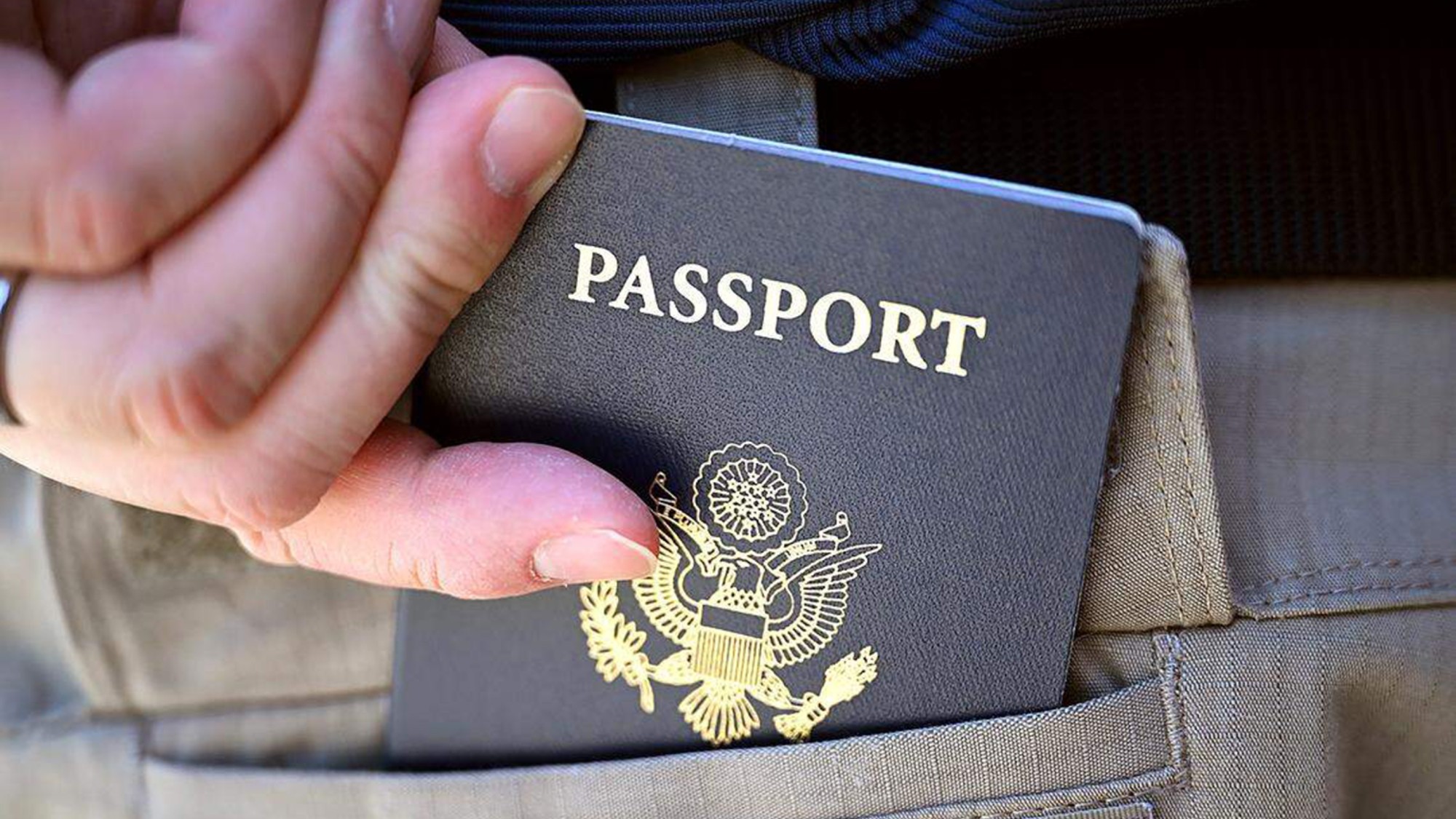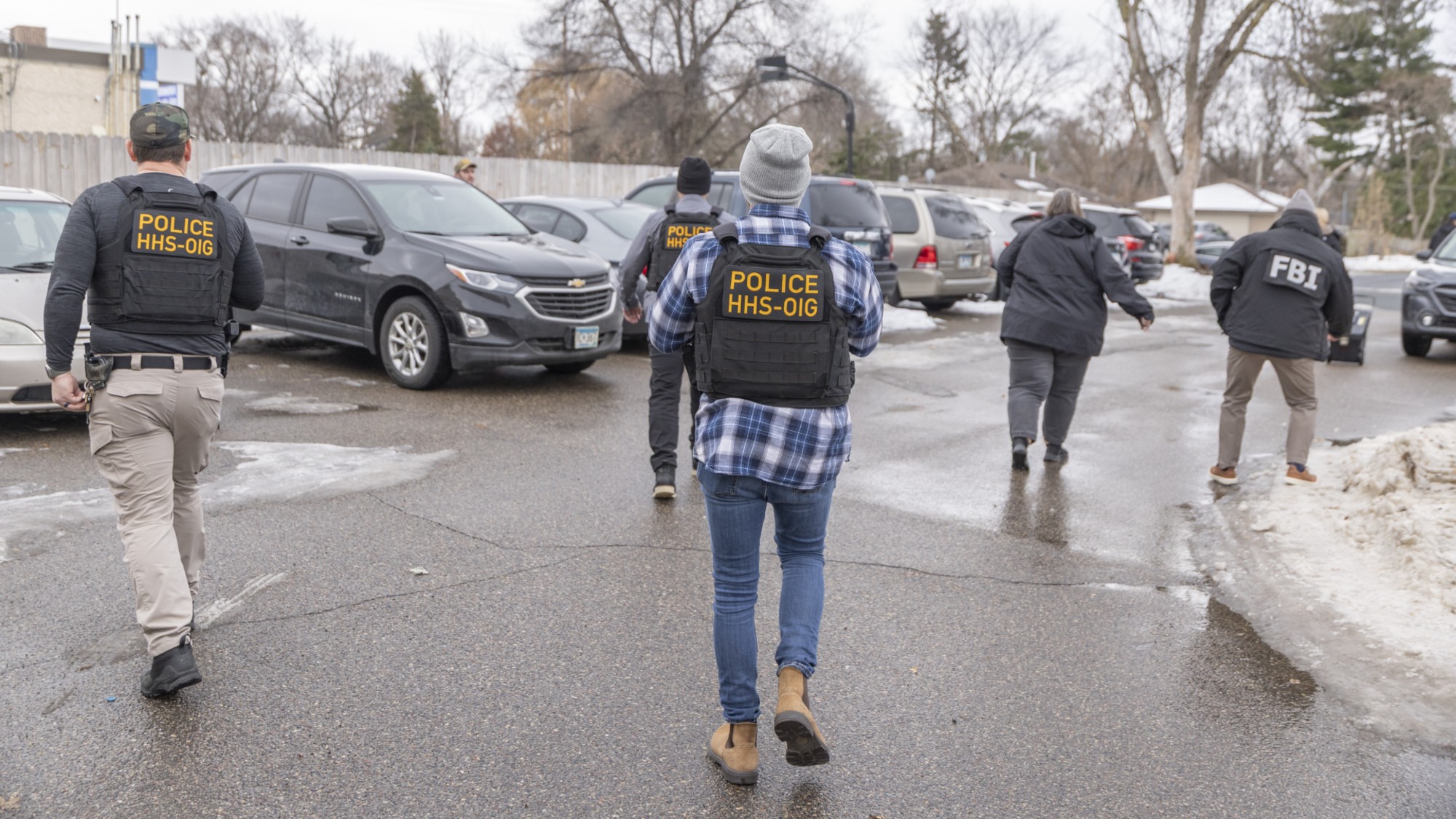The four presidents who were assassinated in office
The unlucky men who fell victim to successful plots against their lives


A free daily email with the biggest news stories of the day – and the best features from TheWeek.com
You are now subscribed
Your newsletter sign-up was successful
Until former President Donald Trump was grazed by a bullet at a rally in Butler, Pennsylvania in July 2024, no incumbent or former American president had been shot since Ronald Reagan in 1981. It certainly isn't because no one tried — assassination attempts and half-baked conspiracies against sitting presidents have been depressingly common throughout U.S. history, including recently. But only a handful have succeeded, marking their victims forever as symbols of American political violence. Three of the assassins were ideologically motivated, while one appeared to suffer from mental illness, but what they had in common most of all was that they successfully carried out their plots against these four presidents.
Abraham Lincoln
An actor named John Wilkes Booth shot and killed President Abraham Lincoln while he watched a performance of the comedy "Our American Cousin" at Ford’s Theater in Washington, D.C. on the evening of April 14, 1865. It was the third serious attempt on Lincoln's life, and it happened just as the country was beginning to heal from the widespread trauma of the Civil War.
Robert E. Lee's army had surrendered just four days earlier, but Booth and his conspirators believed the Confederate cause was still alive. "I at once informed those around that the case was a hopeless one; that the President would die," said Lincoln's family physician Robert King Stone at the trial of Booth's co-conspirators the following month. Lincoln died of his injuries the next morning as authorities hunted Booth, who had escaped in the commotion. Authorities finally tracked him to a tobacco barn in Virginia, where he was killed during a standoff.
The Week
Escape your echo chamber. Get the facts behind the news, plus analysis from multiple perspectives.

Sign up for The Week's Free Newsletters
From our morning news briefing to a weekly Good News Newsletter, get the best of The Week delivered directly to your inbox.
From our morning news briefing to a weekly Good News Newsletter, get the best of The Week delivered directly to your inbox.
James Garfield
On the morning of July 2, 1881, President James Garfield was shot twice in his back by Charles Guiteau, a mentally ill supporter who believed that he should have been awarded an ambassadorship for his (almost entirely imagined) role in Garfield's election the previous year. Surgeons, determined to find the bullet, inadvertently made matters far worse for Garfield. "The doctors tortured the president with more digital probing and many surgical attempts to widen the three-inch deep wound into a 20-inch-long incision," in an effort to remove the bullet, said Dr. Howard Markel at PBS News. Garfield declined over the course of the following weeks, finally dying of sepsis more than two months later, on Sept. 19, 1881. "I did not kill the President. The doctors did that. I merely shot him," Guiteau said at his trial. He was executed by hanging on June 30, 1882.
William McKinley
Less than a year after his decisive 1900 re-election victory over Democrat William Jennings Bryan, Republican President William McKinley was visiting the Pan-American Exposition in Buffalo, New York on Sept. 6, 1901, when an anarchist named Leon Czolgosz fired two bullets point-blank into McKinley's stomach. McKinley was rushed into emergency surgery, where surgeons sutured his stomach but were unable to locate the bullet. He seemed to be improving initially, but in the days that followed, McKinley developed a gangrene infection and eventually died on Sept. 14. "I don't believe in the Republican form of government, and I don't believe we should have any rulers," Czolgosz told doctors in Buffalo. He was executed on Oct. 29, 1901.
John F. Kennedy
The only presidential assassination to be captured on video, President John F. Kennedy was riding in a motorcade in Dallas, Texas on Nov. 22, 1963, when he was shot by Lee Harvey Oswald, a former U.S. Marine and communist. Kennedy was struck by two bullets fired from a rifle, one in the neck and one in the head, and was pronounced dead half an hour later. Texas Gov. John Connally, who was riding in the car, was seriously wounded. Oswald also killed a police officer named J.D. Tippit, before his arrest in a nearby movie theater. "I'm just a patsy," Oswald said to reporters. Those comments helped fuel decades of speculation and conspiratorial thinking about the assassination. But the government's intensive investigation by the Warren Commission concluded that Oswald acted alone. Two days after his arrest, Oswald was shot and killed by Dallas nightclub owner Jack Ruby.
A free daily email with the biggest news stories of the day – and the best features from TheWeek.com
David Faris is a professor of political science at Roosevelt University and the author of "It's Time to Fight Dirty: How Democrats Can Build a Lasting Majority in American Politics." He's a frequent contributor to Newsweek and Slate, and his work has appeared in The Washington Post, The New Republic and The Nation, among others.
-
 What is the endgame in the DHS shutdown?
What is the endgame in the DHS shutdown?Today’s Big Question Democrats want to rein in ICE’s immigration crackdown
-
 ‘Poor time management isn’t just an inconvenience’
‘Poor time management isn’t just an inconvenience’Instant Opinion Opinion, comment and editorials of the day
-
 Bad Bunny’s Super Bowl: A win for unity
Bad Bunny’s Super Bowl: A win for unityFeature The global superstar's halftime show was a celebration for everyone to enjoy
-
 How ‘Manchesterism’ could change the UK
How ‘Manchesterism’ could change the UKThe Explainer The idea involves shifting a centralized government to more local powers
-
 ‘Dark woke’: what it means and how it might help Democrats
‘Dark woke’: what it means and how it might help DemocratsThe Explainer Some Democrats are embracing crasser rhetoric, respectability be damned
-
 San Francisco tackles affordability problems with free child care
San Francisco tackles affordability problems with free child careThe Explainer The free child care will be offered to thousands of families in the city
-
 What is the Donroe Doctrine?
What is the Donroe Doctrine?The Explainer Donald Trump has taken a 19th century US foreign policy and turbocharged it
-
 The Mint’s 250th anniversary coins face a whitewashing controversy
The Mint’s 250th anniversary coins face a whitewashing controversyThe Explainer The designs omitted several notable moments for civil rights and women’s rights
-
 US citizens are carrying passports amid ICE fears
US citizens are carrying passports amid ICE fearsThe Explainer ‘You do what you have to do to avoid problems,’ one person told The Guardian
-
 Inside Minnesota’s extensive fraud schemes
Inside Minnesota’s extensive fraud schemesThe Explainer The fraud allegedly goes back to the Covid-19 pandemic
-
 Trump wants to build out AI with a new ‘Tech Force’
Trump wants to build out AI with a new ‘Tech Force’The Explainer The administration is looking to add roughly 1,000 jobs
